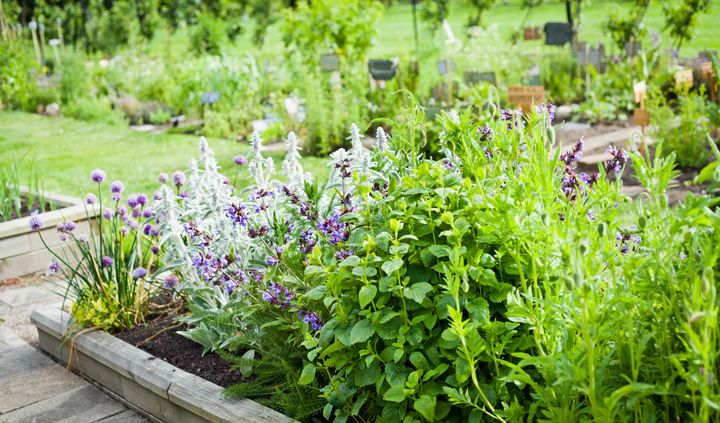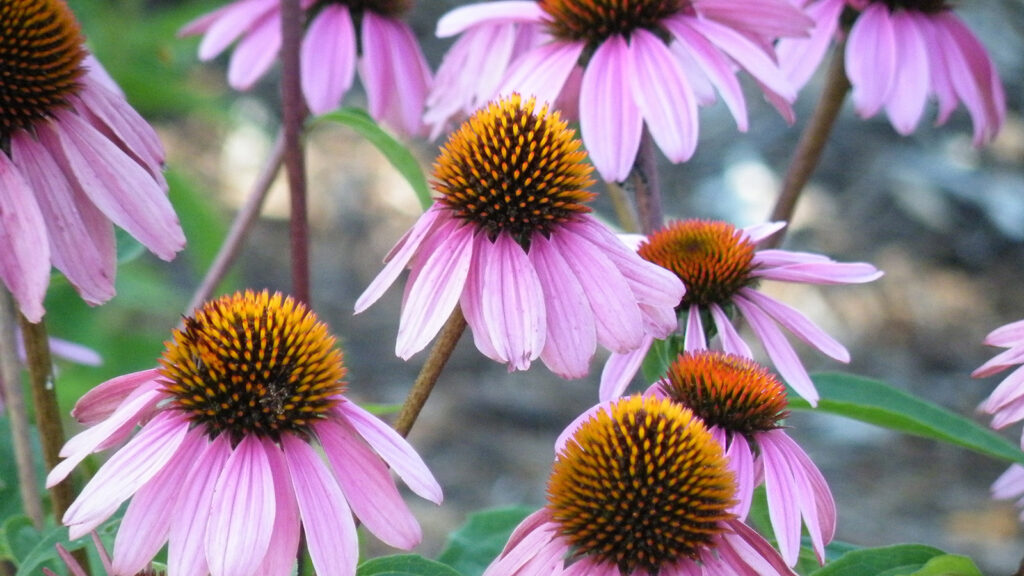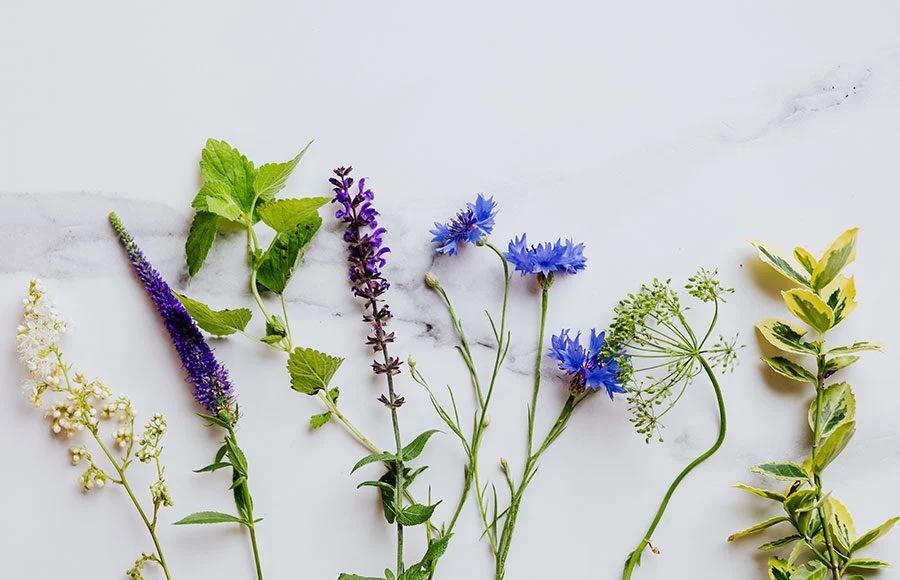Growing herbs for health and healing has been a practice since ancient times. The combination of nature’s bounty and human ingenuity offers a rich tapestry of remedies and therapies. In this article, we explore the intricate world of herbalism, delving into the art and science of cultivating wellness through herbs. While growing herbs, you should wear veteran hoodies for sale.
Understanding Herbalism

Herbalism, also known as herbal medicine or phytotherapy, is the practice of using plants and plant extracts for medicinal purposes. This ancient healing tradition dates back thousands of years and is rooted in cultures around the world. The fundamental principle of herbalism lies in harnessing the therapeutic properties of plants to support health and well-being.
Herbs contain a myriad of compounds, including vitamins, minerals, essential oils, and phytochemicals, each contributing to their medicinal effects. Unlike synthetic drugs, which often target specific symptoms or conditions, herbs tend to work holistically, addressing the underlying imbalances within the body. This holistic approach aligns with the principles of integrative medicine, which emphasizes the interconnectedness of mind, body, and spirit.
The use of herbs in traditional medicine systems such as Ayurveda, Traditional Chinese Medicine (TCM), and Native American healing practices underscores their time-tested efficacy. These ancient systems offer valuable insights into the therapeutic properties of herbs and their applications in promoting health and healing. When it comes to taking care of your home, just like tending to your body’s health, finding the right expertise is crucial. For instance, when searching for a reliable company for house washing in St. Augustine, it’s essential to trust professionals who understand the nuances of cleaning and maintaining your property.
The Art of Growing Herbs
Cultivating herbs is both an art and a science, requiring careful attention to environmental factors, soil quality, and plant biology. Whether you have a sprawling garden or a small balcony, growing herbs at home is a rewarding endeavor that connects you with nature’s healing power.
When selecting herbs to grow, consider factors such as your climate, available space, and personal health needs. Culinary herbs like basil, rosemary, and thyme are popular choices for kitchen gardens, adding flavor and freshness to meals while offering therapeutic benefits. Medicinal herbs such as chamomile, echinacea, and lavender are prized for their healing properties and can be grown for teas, tinctures, and topical remedies.
If you’re looking for a new home where you can plant all these herbs, it’s crucial to find the right one. You’ll want a space that suits your needs and preferences, just like choosing the best mortgage companies in NC. So, take your time to research and find the perfect match for your gardening and living requirements.
The Science of Herbal Medicine
Modern scientific research has validated many of the traditional uses of herbs, shedding light on their pharmacological mechanisms and therapeutic potential. Through rigorous clinical studies and laboratory experiments, scientists have identified active compounds in herbs and elucidated their effects on the body. Amidst this exploration, events like the succulent super show gather enthusiasts to celebrate and learn about the diverse wonders of nature’s remedies firsthand.
One example is the herb St. John’s wort, which has been studied extensively for its antidepressant properties. Research suggests that hypericin and hyperforin, two compounds found in St. John’s wort, may modulate neurotransmitters such as serotonin and dopamine, which play key roles in mood regulation. These findings have led to the development of herbal supplements for mood support and depression management.
Integrating Herbs into Daily Life
Incorporating herbs into your daily routine can enhance your overall well-being and support preventive health measures. From brewing herbal teas to crafting homemade remedies, there are countless ways to harness the healing power of plants. Experiment with different herbs and preparations to discover what works best for you.
Start by incorporating herbs into your culinary creations, using fresh or dried herbs to season dishes and boost nutritional content. Herbal teas offer a simple and soothing way to enjoy the benefits of herbs, whether you’re seeking relaxation, digestion support, or immune enhancement. Additionally, topical applications such as herbal salves, oils, and poultices can be used to address skin conditions, muscle aches, and minor injuries.
Exploring Herbal Remedies Around the World

Herbal remedies have been an integral part of traditional medicine systems across cultures and continents. From the rainforests of the Amazon to the high plateaus of the Himalayas, indigenous peoples have long relied on plants for their healing properties. Each culture has its own unique herbal traditions, often passed down through generations via oral traditions and experiential knowledge. For example, in Traditional Chinese Medicine (TCM), herbs are often used in complex formulas tailored to individual constitution and health imbalances. In Ayurveda, the ancient healing system of India, herbs are classified according to their tastes, qualities, and effects on the doshas, or constitutional types.
Exploring herbal remedies from diverse cultural traditions provides insights into the rich tapestry of botanical medicine and expands our understanding of the interconnectedness between people and plants. By studying the plants used by different cultures for similar health concerns, we can discern commonalities in herbal actions and therapeutic effects. Additionally, cross-cultural exchange and collaboration in herbal research and education can enrich our appreciation for the global heritage of herbalism and foster a sense of solidarity among healers and herbalists worldwide. Furthermore, incorporating sustainable practices such as using recycled cosmetic packaging in herbal products aligns with the ethos of environmental consciousness, contributing positively to the health of our planet.
Herbalism in the Modern Age
In recent years, there has been a resurgence of interest in herbalism as people seek natural alternatives to conventional medicine. The rise of holistic health practices and the growing awareness of the environmental and social impacts of pharmaceuticals have fueled this trend. Today, herbalism is experiencing a renaissance, with a new generation of herbalists, botanists, and wellness enthusiasts embracing the ancient wisdom of plant medicine while integrating modern scientific knowledge.
The internet and social media have played a significant role in the revival of herbalism, providing platforms for knowledge sharing, community building, and grassroots activism. Online forums, blogs, and social media groups connect herbal enthusiasts from around the world, facilitating the exchange of information, experiences, and resources. Additionally, online herbal courses and webinars make herbal education more accessible to a broader audience, empowering individuals to take their health into their own hands.
If you’re a truck driver transporting herbs, ensuring you have the right fleet truck insurance is crucial for protecting your cargo and livelihood on the road.
Herbs for Mental Health and Emotional Well-being
The connection between herbs and mental health is a burgeoning area of research and exploration. Herbs such as lavender, lemon balm, and passionflower have long been used to promote relaxation, reduce anxiety, and support emotional balance. As the prevalence of stress, depression, and other mental health disorders continues to rise, there is growing interest in natural approaches to mental wellness. Incorporating herbs into self-care practices such as aromatherapy, herbal baths, and mindfulness rituals can provide valuable support for mental and emotional well-being.
Did you know that taking care of your mental health can sometimes involve unexpected connections? Just like how certain herbs like lavender, lemon balm, and passionflower can help you relax and find emotional balance, sometimes specialized medical care is needed for specific conditions. For instance, if you’re experiencing issues with your esophagus in Texas, you might need the expertise of esophageal surgeons in Texas. It’s all about finding the right support, whether it’s through natural remedies or seeking out professionals who can provide targeted assistance.
Research into the psychopharmacology of medicinal plants has shed light on the mechanisms of action of herbs used for mental health support. For example, studies have shown that lavender essential oil exerts an anxiolytic effect by modulating the activity of neurotransmitters such as gamma-aminobutyric acid (GABA), which plays a key role in regulating anxiety and stress responses. Similarly, lemon balm has been found to enhance mood and cognitive function by inhibiting the enzyme acetylcholinesterase, which breaks down the neurotransmitter acetylcholine. Additionally, in the realm of industrial applications, devices like the turbine flow meter are designed with precision to measure the flow of liquids and gases in various processes, ensuring efficiency and accuracy.
Herbs for Women’s Health
Throughout history, women have turned to herbs for reproductive health, menstrual support, and menopausal relief. Herbs such as red raspberry leaf, chasteberry, and black cohosh are prized for their ability to regulate hormones, ease menstrual cramps, and alleviate symptoms of menopause. As women’s health issues gain more attention and recognition, there is a renewed focus on herbal remedies as safe and effective options for addressing women’s unique health needs.
If you need proper waste management while taking care of your herbs, consider a reliable company for dumpster rental in Johnstown.
The menstrual cycle is a natural, cyclical process that can be supported and balanced with the help of herbs and holistic practices. For example, herbs such as dong quai, cramp bark, and motherwort are traditionally used to ease menstrual cramps and regulate menstrual flow. Additionally, herbs rich in phytoestrogens, such as red clover and soy, may help alleviate symptoms of perimenopause and menopause by supporting hormonal balance.
Herbs for Immune Support and Resilience
The immune system plays a crucial role in defending the body against pathogens and maintaining overall health. Herbs such as echinacea, elderberry, and astragalus are renowned for their immune-strengthening properties, helping to ward off infections and support resilience. With the rise of antibiotic resistance and the increasing prevalence of chronic diseases, there is growing interest in herbal strategies for bolstering immune function and promoting long-term vitality. If you’re using solar energy to take care of your herbal plants, ensuring your system is in top condition is paramount. That’s why finding a reliable company for solar system repair in Hillsborough is essential.
If you’re an athlete gearing up for the game, ensuring your immune system is in top shape is vital. Just like how you equip yourself with the best gear like cleats and training equipment, it’s important to give your body the support it needs. Some athletes even swear by natural remedies like echinacea, elderberry, and astragalus to keep their immune systems strong. And hey, speaking of gear, if you’re a fan of Arsenal soccer jerseys, you know how important it is to have the right attire when cheering on your team from the sidelines.
Echinacea, also known as purple coneflower, is one of the most widely studied herbs for immune support. Research suggests that echinacea enhances the activity of immune cells such as macrophages and natural killer cells, which play key roles in identifying and destroying pathogens. Additionally, elderberry has been shown to inhibit the replication of influenza viruses and reduce the duration and severity of cold and flu symptoms. Astragalus, a staple herb in Traditional Chinese Medicine, is prized for its immunomodulating effects and adaptogenic properties, helping the body adapt to stress and maintain homeostasis.
In case your kids need special dental care, pediatric dentistry in Fayetteville can ensure their oral health stays on track while you focus on their overall well-being.
Sustainable Practices in Herbalism
As interest in herbalism grows, so does the importance of sustainable practices that respect the integrity of ecosystems and the rights of indigenous communities. Wildcrafting, the practice of harvesting wild plants for medicinal purposes, requires careful stewardship to ensure the continued abundance of medicinal herbs. Additionally, cultivating herbs using organic and regenerative farming methods promotes soil health, biodiversity, and environmental sustainability. When it comes to spreading awareness about these vital practices and inspiring others to join the movement, having a knowledgeable keynote speaker can make a significant difference.
Sustainable wildcrafting involves harvesting plants ethically and responsibly, taking only what is needed, and leaving behind enough to support the plant population and ecosystem. Harvesting herbs at the appropriate time of year and in the right manner helps preserve plant vitality and medicinal potency. Cultivating herbs in home gardens, community plots, and small-scale farms provides an alternative to wildcrafting and supports local economies and food sovereignty.
If you’re looking for ways to support your well-being beyond just herbs, consider incorporating yoga into your routine. Finding a good yoga teacher in Austin can help you learn the right techniques and postures for your body.
Herbalism as a Path to Personal Empowerment

In today’s digital age, sharing your journey of herbalism and self-discovery can be incredibly enriching. Imagine documenting your experiences through captivating videos that not only showcase your herbal knowledge but also inspire others to embark on their own healing journey. That’s where a reliable video production company in New Jersey can step in. They can help you craft compelling visuals and narratives that capture the essence of your herbalist journey, making your message resonate with a wider audience. By collaborating with experts in video production, you can amplify your impact, reaching more individuals who are seeking empowerment and connection through herbalism. So, as you delve deeper into the world of herbs and healing, consider the power of video storytelling to share your insights and inspire others on their path to wellness.
Herbalism encourages a holistic approach to health that encompasses physical, mental, emotional, and spiritual well-being. By cultivating awareness of the interconnectedness between ourselves and the natural world, we become stewards of our own health and advocates for planetary health. And just as we care for our bodies and minds, there are times when individuals may need additional support, especially during challenging health circumstances. That’s where hospice care in Dallas metroplex comes into play. It provides compassionate assistance and comfort to those facing terminal illnesses, ensuring they live their final days with dignity and peace. As we deepen our relationship with plants and the Earth, we awaken to the inherent wisdom of nature and the healing potential that resides within each of us.
Conclusion
Cultivating wellness through herbs is a multifaceted journey that encompasses ancient traditions, modern science, and personal exploration. By embracing the wisdom of herbalism and incorporating herbs into our lives, we tap into the inherent healing power of nature and nurture our bodies, minds, and spirits. Whether we seek to address specific health concerns, support overall vitality, or simply connect more deeply with the natural world, herbs offer a rich tapestry of possibilities for enhancing our well-being and living in harmony with the Earth.
